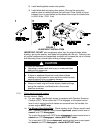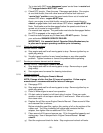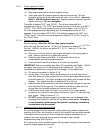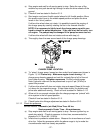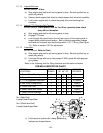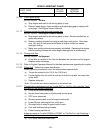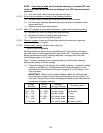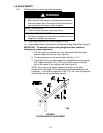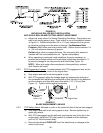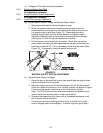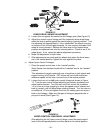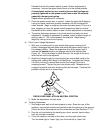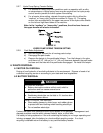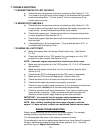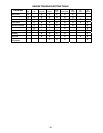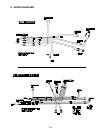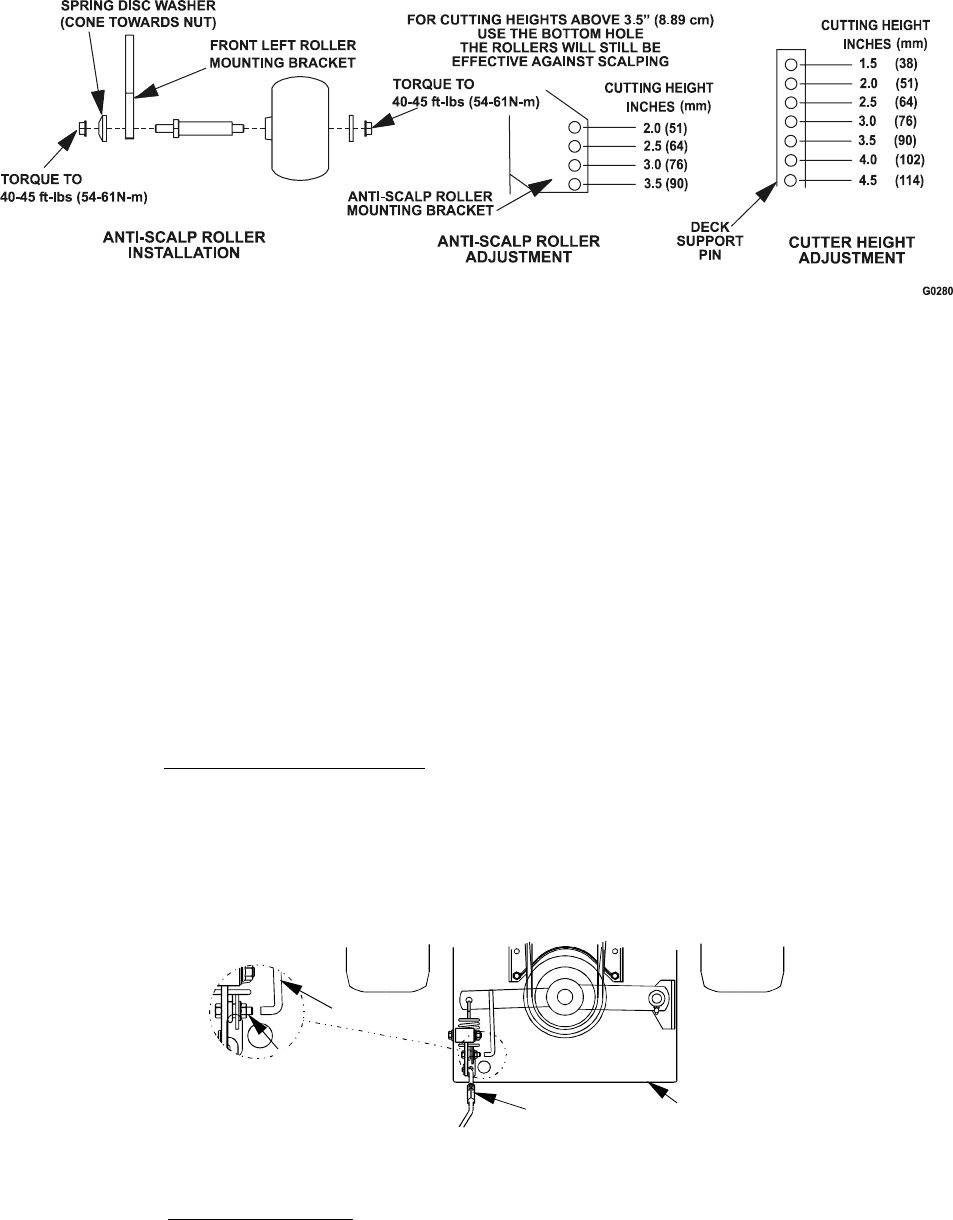
- 32 -
FIGURE 10
ANTI-SCALP ROLLER BOLT INSTALLATION
ANTI-SCALP ROLLER AND CUTTING HEIGHT ADJUSTMENT
c) Adjust anti-scalp rollers For Normal Operating Conditions. Stop engine and
wait for all moving parts to stop. Place rollers in one of the positions shown
in Figure 10. Rollers will maintain 3/4 in. (1.9 cm) clearance to the ground
to minimize gouging and roller wear or damage. For Maximum Deck
Flotation, place rollers one hole position lower. Rollers should maintain 1/4
in. (.64 cm) minimum clearance to ground.
Do Not adjust rollers to support the deck. Be sure spring disc washer is
installed with the cone towards the nut. Tighten nuts properly.
d) When operating in extremely rough conditions it may be necessary to
position the anti-scalp rollers one or two holes higher than described in "c"
to prevent damage to the rollers and/or bolt failure (See Figure 10).
NOTE: When anti-scalp rollers are placed in these positions, reduced
deck flotation will result.
5.2.2 PTO Engagement Linkage
: Located between the PTO engagement lever on the
left handle and the left rear corner of the engine deck.
a) Stop engine and wait for all moving parts to stop.
b) With PTO engaged, adjust the linkage length by loosening the locknut on
the turnbuckle and adjusting the turnbuckle so that the bolt on the bellcrank
and the indicator arm align with each other within 1/16” (.16 cm) (See
Figure 11). Tighten locknut against turnbuckle.
FIGURE 11
BLADE ENGAGEMENT LINKAGE
5.2.3 PTO Safety Switch
: Mounted to a tab on the inside left side of the fuel tank support.
a) Stop engine and wait for all moving parts to stop. Remove ignition key or
spark plug wire(s).
b) With PTO disengaged and the bellcrank touching the rear of the slot in the
engine deck, adjust the PTO safety switch (if needed) until the bellcrank
arm is 5/16” from the switch body.
c) Be sure the bellcrank DOES NOT touch the switch body or damage to the
switch could occur.
Align Bolt to
Indicator
within 1/16”
Indicator
Turnbuckle
Engine Deck



